When Mike Waltz was still in the House of Representatives, he was among the biggest supporters of the SHIPS Act, a bipartisan bill to incentivize domestic shipbuilding and boost the U.S. Merchant Marine as a strategic bulwark against China’s growing maritime power. Shortly before the Florida Republican left Congress to become Donald Trump’s national security adviser, he told his colleagues he would continue to fight for SHIPS while in the White House. Indeed, Waltz was among the aides standing next to the Resolute Desk in the Oval Office last month as the president signed an executive order to “restore America’s maritime dominance,” proof that Waltz was ensuring the administration was all-in.
So when the sponsors of the original SHIPS legislation reintroduced it in the form of two bills on Wednesday, they thought they had their champion in the White House. A day later, Waltz was gone.
On Thursday, after multiple media reports that Waltz and his deputy Alex Wong had been given the boot, Trump announced Waltz would be his new nominee for ambassador to the United Nations after the president’s first nominee, Rep. Elise Stefanik, withdrew in March. On top of that, Marco Rubio, the secretary of state, would also serve as national security adviser “in the interim”—in addition to his roles as acting USAID administrator and acting archivist.
On the one hand, it seems like an even trade. While still in the Senate, Rubio had also worked with Waltz and some of the SHIPS co-sponsors—including Democratic Sen. Mark Kelly and Democratic Rep. John Garamendi—to craft a comprehensive plan for a new American maritime strategy. Publicly, the bill’s co-sponsors, which also include Republican Sen. Todd Young and Republican Rep. Trent Kelly, insist that this doesn’t change the trajectory of their bill.
“We greatly value Congressman Mike Waltz’s support and leadership throughout this process, but this bill is not about any one person,” Garamendi told The Dispatch over email. “We have previously worked with others across the administration, including Secretary of State Marco Rubio, and we continue to work with other senior administration officials to strengthen our maritime capacity. We will get this done.”
Nevertheless, the departure of Waltz from his post means national security hawks in both parties have lost a vital ally in a White House that is otherwise broadly more dovish in its foreign policy. From a vice president hand-selected by Tucker Carlson to the powerful aide keeping Reaganites out of key positions, Hill hawks are looking at an administration more hostile to the idea of using American power abroad than they would prefer. Members of Congress certainly sound concerned about the change, especially since Rubio seems to be only a temporary replacement until the White House can settle on a permanent one.
Waltz’s departure comes about five weeks after The Atlantic first reported that he had mistakenly added Jeffrey Goldberg, the publication’s editor in chief, to a group chat on Signal that also included Rubio, Vance, and Defense Secretary Pete Hegseth, among other top administration officials. It was in this chat that Hegseth shared sensitive information about a planned American strike on Houthis in Yemen—information he would concurrently share with others, including his wife, in a separate text thread.
“I think they’re holding the wrong guy accountable,” Kelly told CNN Thursday. “I think they fired the wrong guy.” That would be Hegseth, Kelly later clarified.
While Kelly and other Democrats say Hegseth was the more reckless in the infamous Signal chat, internally, the knives were quickly out for Waltz. Despite the national security adviser’s longstanding loyalty to Trump, he had long been seen as a “neocon” interloper by MAGA’s isolationist wing given his ties to Dick Cheney and his appearance in an anti-Trump ad during the 2016 presidential primary. “I’ve served multiple tours in Afghanistan as a Special Forces commander,” Waltz said in the ad. “Donald Trump hasn’t served this country a day in his life.”
That’s the video that Laura Loomer, a notorious conspiracy theorist, tried to show Trump during her visit to the White House last month, during which she provided the president with evidence of supposed disloyalty from many of the staff Waltz had brought on to work at the National Security Council. Despite Waltz interrupting the meeting and continuing to vouch for his team, Trump’s meeting with Loomer prompted the dismissal of half a dozen officials. The writing seemed to be on the wall.
Trump’s golden parachute for Waltz in the form of the United Nations ambassadorship may have its own drawbacks. Unlike the White House position of national security adviser, Waltz’s new post requires a Senate confirmation hearing, during which he will face difficult questions about the Signal chat controversy that could further embarrass him, Hegseth, and the administration.
Meanwhile, Rubio’s stopgap role as national security adviser may not last for long, with multiple outlets reporting that Middle East envoy Steve Witkoff is a leading candidate for the job. That would be more bad news for hawks who have cringed at Witkoff’s diplomatic efforts with both Russia and Iran—though some of the consternation with Witkoff is coming from inside the house. One veteran of Trump’s first administration told the New York Post Witkoff is a “bumbling f–king idiot” for meeting with Russian President Vladimir Putin alone.
It’s all just another week in the rolling drama of the Trump administration.
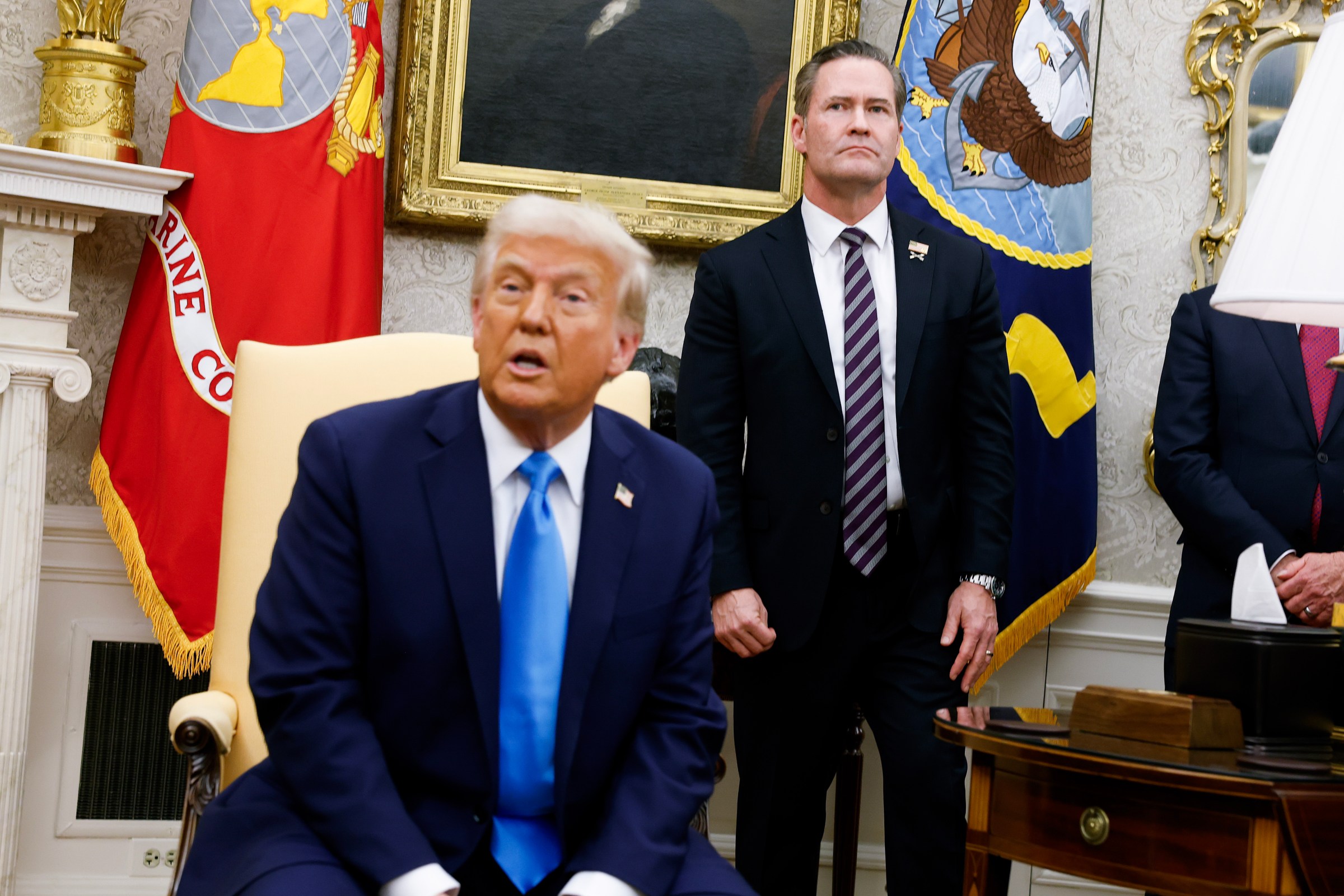

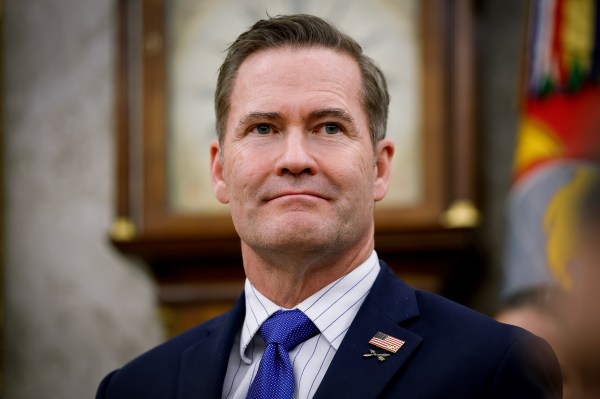
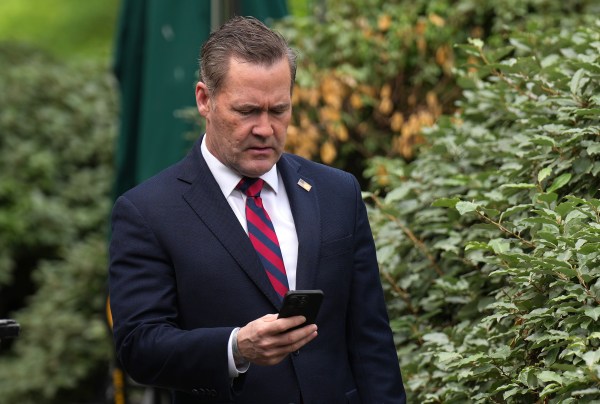
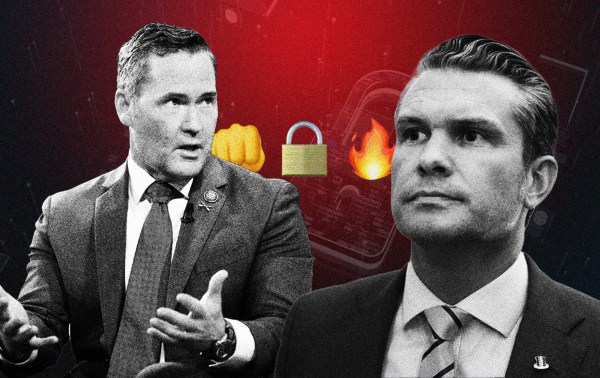


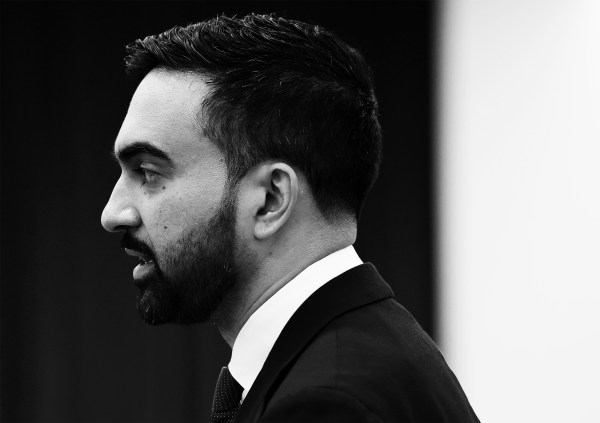
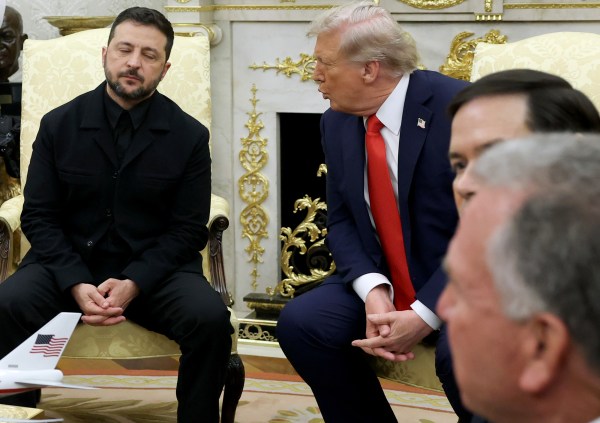

Please note that we at The Dispatch hold ourselves, our work, and our commenters to a higher standard than other places on the internet. We welcome comments that foster genuine debate or discussion—including comments critical of us or our work—but responses that include ad hominem attacks on fellow Dispatch members or are intended to stoke fear and anger may be moderated.
With your membership, you only have the ability to comment on The Morning Dispatch articles. Consider upgrading to join the conversation everywhere.